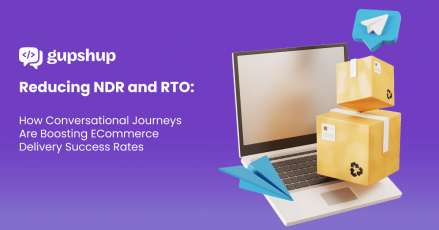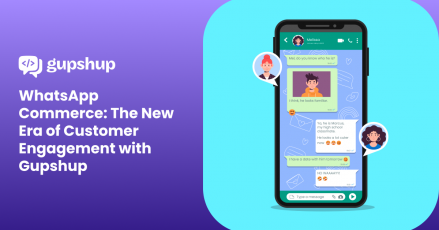Hospitable chatbots poised to transform the industry

“Chatbots are the ideal solution for unique challenges in hospitality”
Can computers be hospitable? Can software be warm, friendly, genial? The answer to these questions will determine the extent to which chatbots and conversational experiences will transform the hospitality industry. This article from Gupshup discusses the latest chatbots technology trends as it relates to the hospitality industry.
Training schools recommend that the attributes required to succeed in the hospitality industry include commitment, enthusiasm, teamwork, efficiency, flexibility, time management, organization, communication skills etc. Therefore, let’s explore how chatbots measure up across many of these dimensions.
Computers are naturally suited to repetitive tasks that must be performed with great efficiency. They cannot be beaten on time management and organization. Chatbots are always punctual, highly responsive and always have all required information at their “fingertips”.
Chatbots can be consistently courteous. They don’t get angry, upset or provoked. They can be programmed to handle literally any situation calmly and rationally. Any warmth that it demonstrates may be superficial, but it may still be adequate in many situations. Interestingly, they can also be programmed to have quirky or surprising personality traits that may endear them to their customers.

A unique challenge in the hospitality industry is that it deals with a disproportionately high number of customers that speak different languages and come from different places and cultures. Personalizing and catering to every request is especially challenging, with enormous room for miscommunication misunderstanding. Requests and responses often get lost in translation. Chatbots can offer a high degree of personalization, not possible through other means. Chatbots can record and remember user preferences and use them for all future interactions – chatbots don’t forget. The simple request “can you make a recommendation?” can have many different responses depending on who’s asking and what they’re interested in. Adjusting room settings at check-in, making restaurant recommendations at dinnertime, communicating in a friendly language, making show bookings etc. now become easier with chatbots. It’s as if each customer now has a personal tour guide accompanying her wherever she goes, taking care of every personal preference, request or inconvenience.

Another unique challenge of the hospitality industry is extreme demand volatility. Demand can vary substantially between peak and idle times. Everyone has meals at the same time; people tend to check in and check out at regular times; preferred vacation schedules tend to be the same everywhere. While some of the seasonality maybe across weeks and months, in some cases it varies dramatically across hours. This makes it virtually impossible to staff appropriately. Staffing for peak demand can hurt margins while staffing for low demand hurts customer satisfaction – most businesses make a compromised choice somewhere in between by staffing for average demand. Therefore, at peak times, service levels tend to suffer – lines get longer, wait times increase, frustrations boil over while customer and staff anxiety increases. This is where chatbots can have substantial impact. Chatbots are highly scalable and flexible. They can go from handling one customer to a million customers instantly. Activities like concierge, room service, check-in, check-out, order taking, appointment scheduling, payments and more can be easily automated through chatbots. Chatbots can automate routine activities freeing up humans to deal with the exceptions.

Chatbots can handle not just inbound requests, but can also send outbound messages. They can do so with context and intelligence. For example, the chatbot can remind a frequent visitor to come back again, but wouldn’t bother an infrequent visitor. Businesses can now engage with their customers even when they are not physically at the property.
Chatbots are great not only at customer-facing activities but also back-end activities to support operations efficiency. Chatbots can coordinate, say, housekeeping and cleaning staff efficiently in the same way Uber coordinates its drivers. Automation can free up managerial staff to handle contingencies as well as give the organization the ability to respond instantly to dynamic events.
This does not necessarily mean that chatbots are ready to take on the entire workload in the hospitality industry. There is plenty that they cannot do. However, chatbots have evolved to a stage where they can handle many tasks effectively. Chatbots can work within areas they excel at while being good team players for everything else. The hospitality industry stands to gain from chatbots more than most other industries given its unique challenges. These challenges create opportunities that can reward the early adopters.
To answer the first question: yes, chatbots are certainly hospitable. Execs that care about customer satisfaction cannot afford to ignore chatbots anymore.




